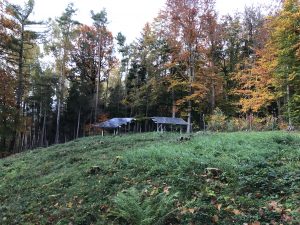 Often one hears and reads about the potential of photovoltaics and how it can be used everywhere. It is a fact that PV is not only one of the most popular and cheapest types of electricity generation, but also highly flexible and often the solution for difficult situations. The latter applied to the community of Urphertshofen in Middle Franconia, Germany. Here, a photovoltaic system is used for the treatment of drinking water – in the middle of the forest.
Often one hears and reads about the potential of photovoltaics and how it can be used everywhere. It is a fact that PV is not only one of the most popular and cheapest types of electricity generation, but also highly flexible and often the solution for difficult situations. The latter applied to the community of Urphertshofen in Middle Franconia, Germany. Here, a photovoltaic system is used for the treatment of drinking water – in the middle of the forest.
Drinking water purification and necessary treatment of water is often accompanied with some difficulties. The municipality of Urphertshofen uses two wells for this. One of them is used permanently, the other as a reserve. But due to the dry and hot summers in recent years, the community finally had to resort to using the reserve well.
No sooner said than done and in principle without and problems, had it not been for a routine check of the water quality of the reserve well that revealed a slight germ contamination. Under these circumstances it is not possible to use the water as drinking water. So the municipality decided to install a disinfection system to sterilise the water as it flows by using UV light, and commissioned Mösslein Wassertechnik for this, who turned to the engineering office IDEAS with regard to planning and implementation. This plan also sounds plausible and feasible in the first step. But the well was built in a remote forest. There is no electrical connection which is needed for the UV lamp. So what should one do? The cost from the electricity supplier for a connection was very sobering and would have been in the five-digit euro range – a fact that makes the project anything but profitable from an economic point of view.
The solution: photovoltaics
The use of a photovoltaic system, specially adapted to the conditions, is much more cost-effective, flexible and efficient, so the IDEAS managers approached IBC SOLAR. The designed PV solution from IBC SOLAR meets all the important requirements of the community. The off-grid photovoltaic system with an output of 4kWp consists of IBC SOLAR’s own brand MonoSol modules, an inverter and MOLL batteries. An important aspect in this context is the size of the system. The performance was dimensioned so that the battery is fully charged every evening – even in bad weather conditions. This ensures that the disinfection of the water can continue through the night without interruptions. In the event of a power failure, an additionally built-in safety valve ensures that the water is bypassed and cannot be used as drinking water – a well thought-out system with great effect.
Nice post Annika. I think people from places where access to clean water is quite difficult need this photovoltaics. PV is indeed a good solution to have a good access to the most basic need of every human person. If this will be distributed to third world countries, we can surely improve people’s lives there.